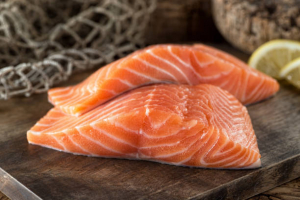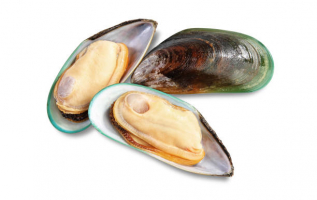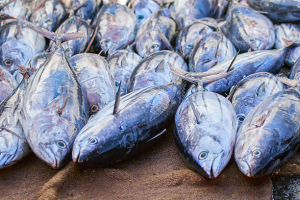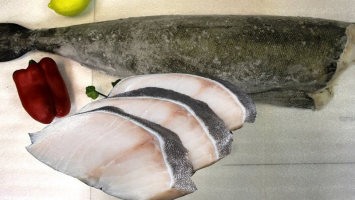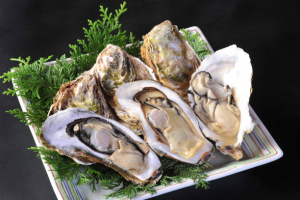Top 7 Health Benefits of Eating Sardines
Small-headed herring relatives known as sardines are typically found in brackish and freshwater environments. Sardines are increasingly a common ingredient in ... read more...family dinners since they are tasty and provide a lot of nutrition. They are high in protein and important elements such as vitamin B12 and selenium, as well as omega-3 fatty acids. In this article, let's with Toplist make a list of the best health benefits of eating sardines.
-
One of the unsaturated fatty acids, omega-3, is particularly important for every person's health. These fatty acids, however, cannot be produced by the body on their own. To safeguard their own health, each individual must actively give their body omega 3. One of the richest food sources of omega-3 fatty acids is sardines. The body may absorb up to 1300 mg of omega-3 from just 50g of sardines. EPA and DHA, two critical fatty acids that the body utilizes to lower inflammation, enhance cognitive function, and lower the risk of chronic diseases, are also provided by them.
Sardines are highly efficient in the prevention and treatment of various ailments because of the anti-inflammatory characteristics of omega-3. EPA and DHA, two critical fatty acids that the body utilizes to lower inflammation, enhance cognitive function, and lower the risk of chronic diseases, are also provided by them. Studies have shown that eating sardines consistently can help prevent some serious forms of cancer as well as mood problems including melancholy, arthritis, and infertility.
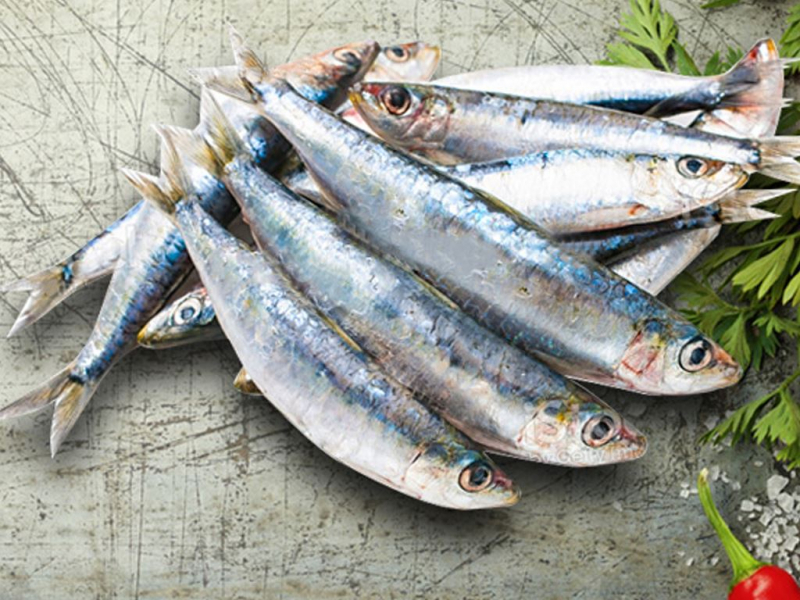
Rich in Omega-3 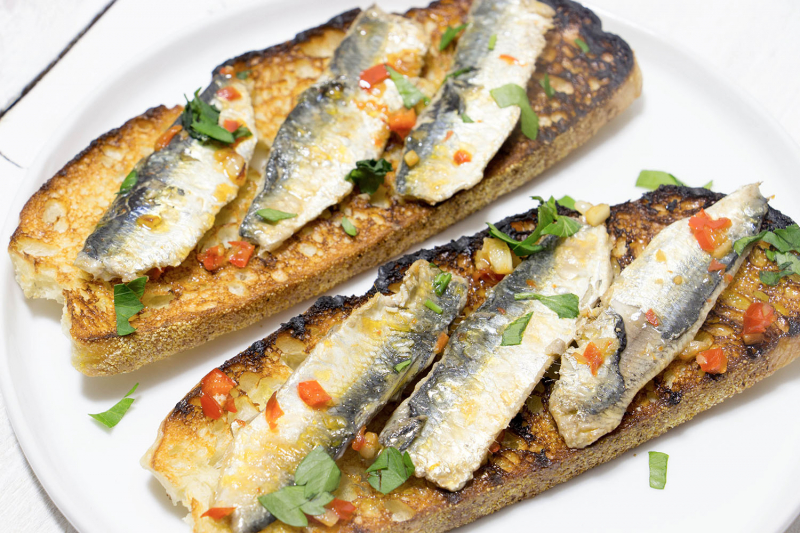
Rich in Omega-3 -
Sardines have an average calorie count of 250 per 100g, 125 of which are from protein and the remaining 125 from fat. You can get more protein for your body in your regular meals by eating pork, and beef,... but if you eat too much, you run the danger of developing diabetes and obesity. Therefore, eating sardines is entirely healthy and you need not worry about consuming too much protein like meat.
Sardines also aid in reducing cravings and making you feel fuller faster because of their high protein content. This can help you swiftly reduce weight and limit your later-day food cravings. According to a University of Iceland study that was published in the International Journal of Obesity, eating sardines occasionally can help people lose up to 1 kg more weight than a group of people who go without food for four weeks straight. To promote health, canned sardines should be made using olive oil and low-salt types.
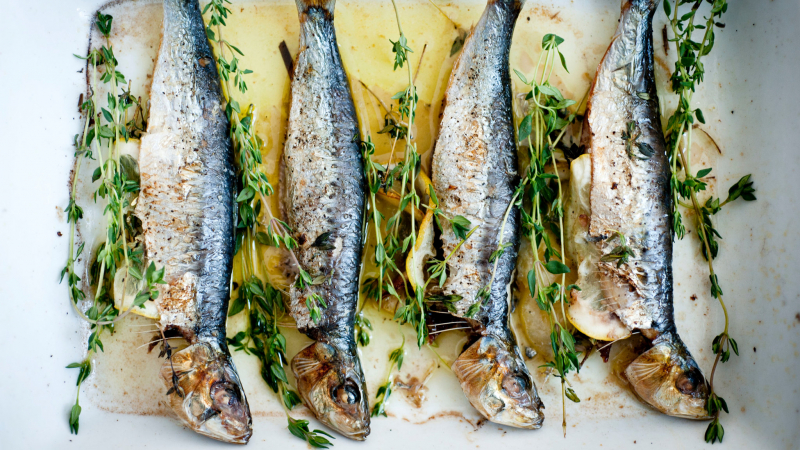
Add Protein and Healthy Fats 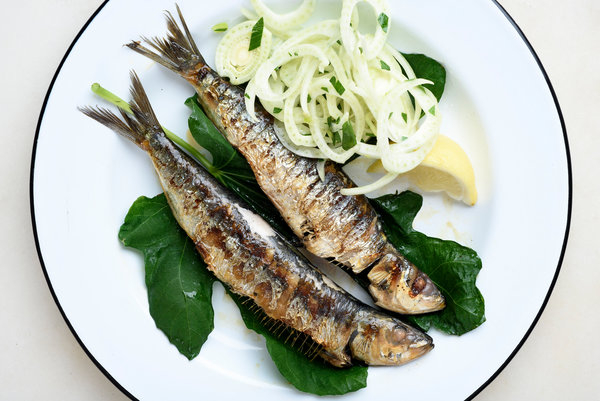
Add Protein and Healthy Fats -
People frequently consider consuming milk when they need to supplement calcium to avoid bone problems. Numerous vital elements and vitamins included in milk aid in the rapid development of bones in youngsters and the prevention of osteoporosis in adults. However, those who are lactose intolerant or allergic to milk should avoid them. Sardines, which offer dozens of minerals to better protect bones than milk, are always sold in the market, claims Katherine Marengo, a dietitian at Louisiana State University (USA).
The National Osteoporosis Foundation and the National Institutes of Health report that a serving size of 85g of sardines contains 325mg of calcium, compared to 276mg in a serving size of 85g of milk. Because of their soft, edible bones, sardines in cans are a good source of calcium. The fact that the Japanese always like sardines with their rice is not a coincidence. Even though they are small, they are packed with vitamins and minerals, so even when they just eat a little, they still give the body necessary nutrients.
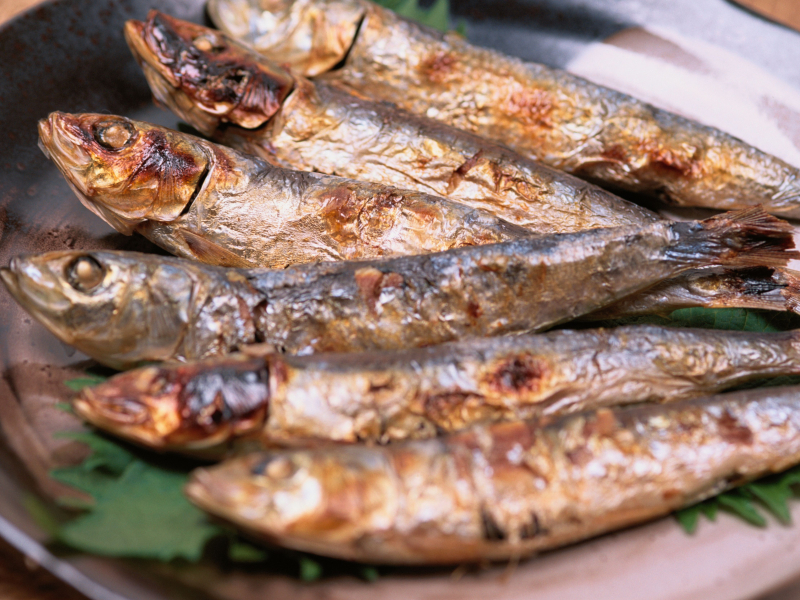
Rich in Calcium 
Rich in Calcium -
Another benefit of sardines in avoiding diabetes is highlighted by a 2021 study published in the journal Clinical Nutrition. Two servings of sardines per week for a full year supplied enough calcium, vitamin D, and omega-3s to dramatically lower the risk of diabetes in older persons with prediabetes, according to a study. likelihood of developing type 2 diabetes.
Additionally, eating oily fish like sardines will increase your intake of heart-healthy omega-3 fatty acids in addition to calcium, vitamin D, and protein. Sardines also contain protein, vitamin D, and a group of omega-3 fatty acids, all of which are crucial nutrients for preventing cancer and sunburn of the skin. These ingredients will always protect skin cells, hydrate skin, and care for silky hair much as expensive cosmetics.
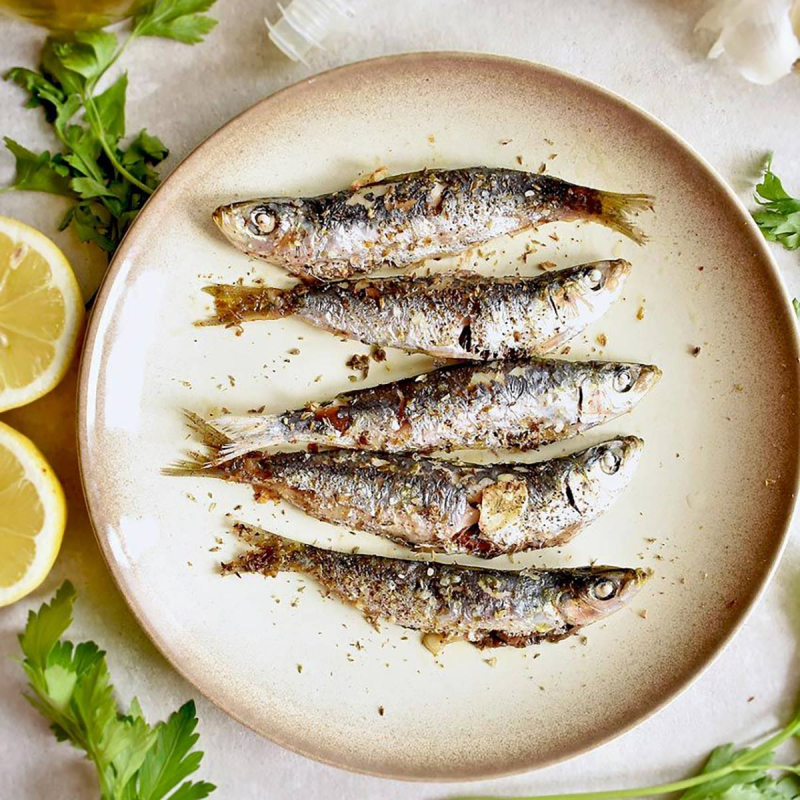
Prevent Diabetes 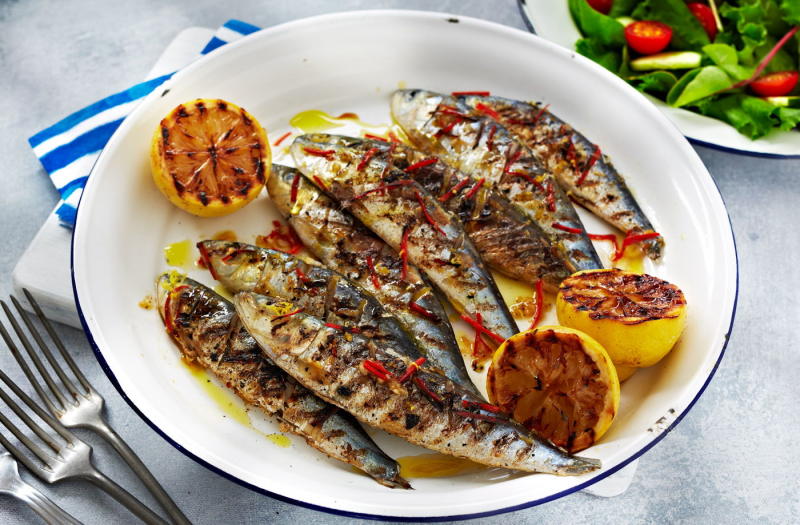
Prevent Diabetes -
Minerals play an equally significant function in health as do vitamins. Additionally, minerals have a role in cell construction, life processes, fluid balance, the growth of teeth, bones, and muscles, as well as the maintenance of the nervous system's functionality. horrible. Minerals are substances that the body cannot create on its own, just as vitamins. Minerals are primarily obtained through eating. Health is ensured by following a scientific diet rich in nutrients.
Along with calcium and lots of vitamins, sardines contain a number of beneficial minerals including niacin, iron, potassium, magnesium, zinc, and phosphorus:
- Calcium: 38% of the DV
- Phosphorus: 49% of the DV
- Selenium: 75% of the DV
- Magnesium: 10% of the DV
- Iron: 16% of the DV

Rich in Minerals 
Rich in Minerals -
Fish oil, which has a high omega content and lowers the risk of strokes and heart attacks, aids the body in raising healthy cholesterol. Additionally, omega-3 will be changed into prostaglandins once it enters the body. This substance aids in the efficient management of joint pain and plays a crucial part in the processes of anti-inflammatory reactions.
Additionally, the vitamin B12 in sardines is a great source of nutrients that support the health of blood vessels to function more nimbly, improve the balance of serum homocysteine levels, and minimize atherosclerosis. Additionally, according to Healthline, it lowers blood pressure, enhances heart health, and lessens the danger of blood clots. Sardines also include a healthy amount of vitamin D and B-12, both of which are crucial for bone health.
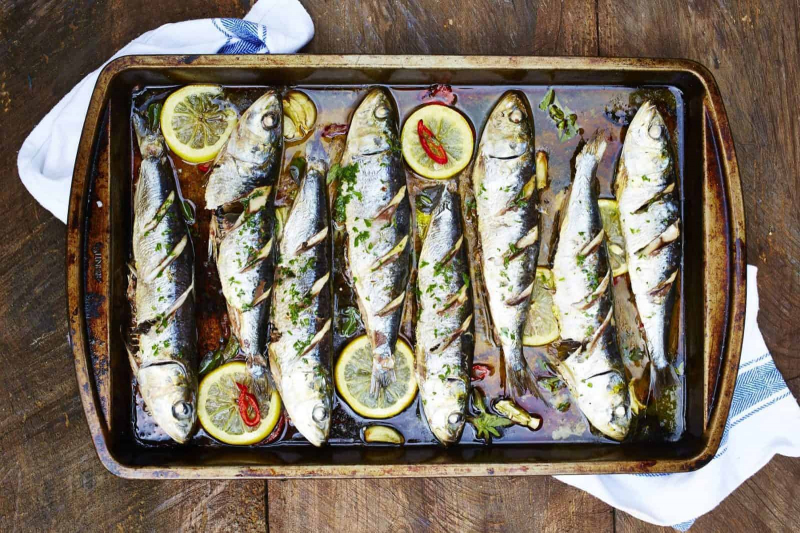
Good For Heart and Alleviating Joint Pain 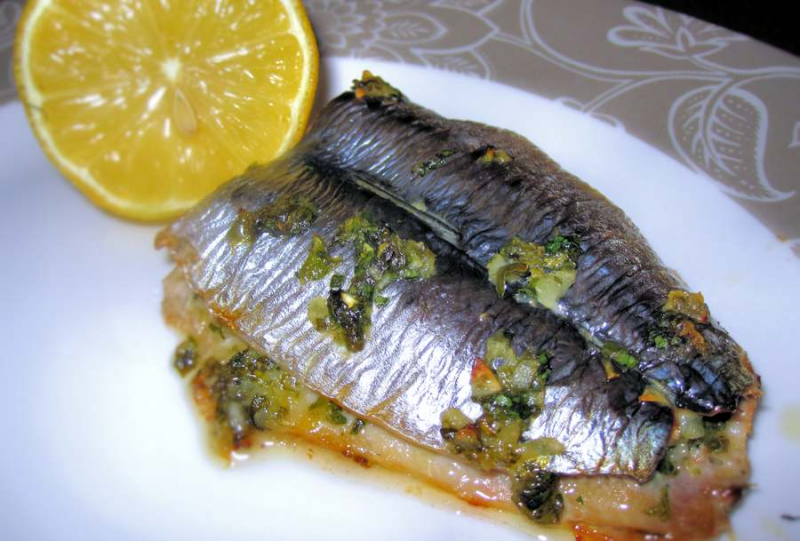
Good For Heart and Alleviating Joint Pain -
Both the beneficial fats and proteins found in sardines work to reduce the blood sugar absorption process. Sardines and other high-protein, high-fat foods can block the release of glucose (sugar) into the bloodstream, reducing the risk of blood sugar rises and crashes. People with diabetes, metabolic syndrome, or other illnesses linked to insulin resistance should pay particular attention to their intake of foods that contain the necessary fats and proteins.
Researchers fed the mice casein, protein sardine with high fructose protein, or sardine without high fructose in a trial on rats that were fed high fructose. Finally, they discovered that patients with metabolic syndrome may benefit from the diet (sardine protein), which avoided and reversed insulin resistance and oxidative stress.

Regulate Blood Sugar 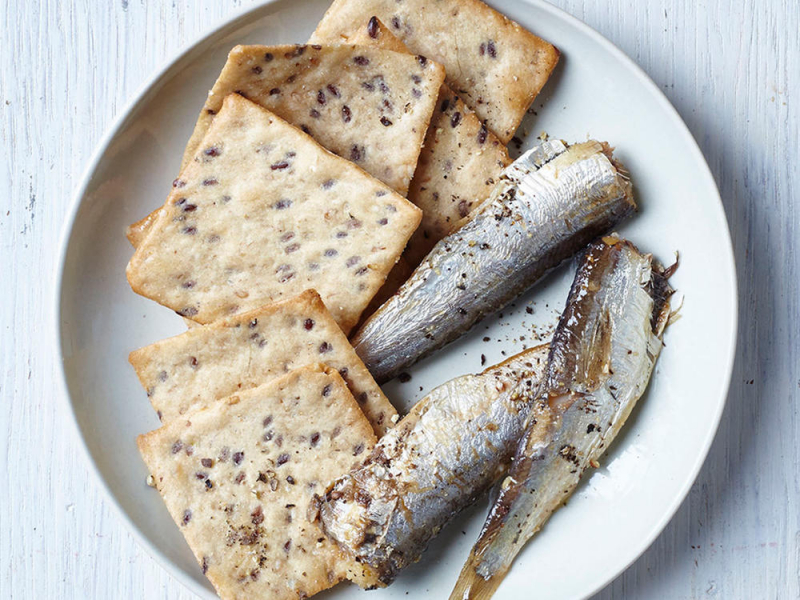
Regulate Blood Sugar










